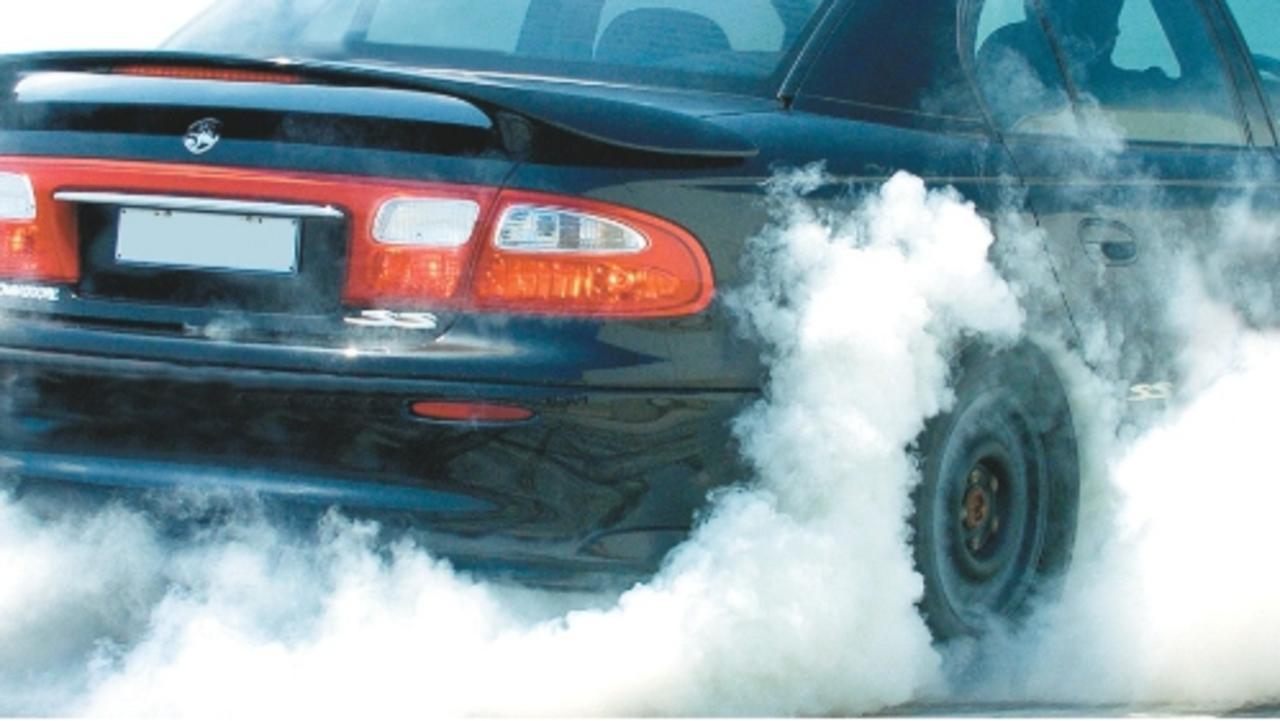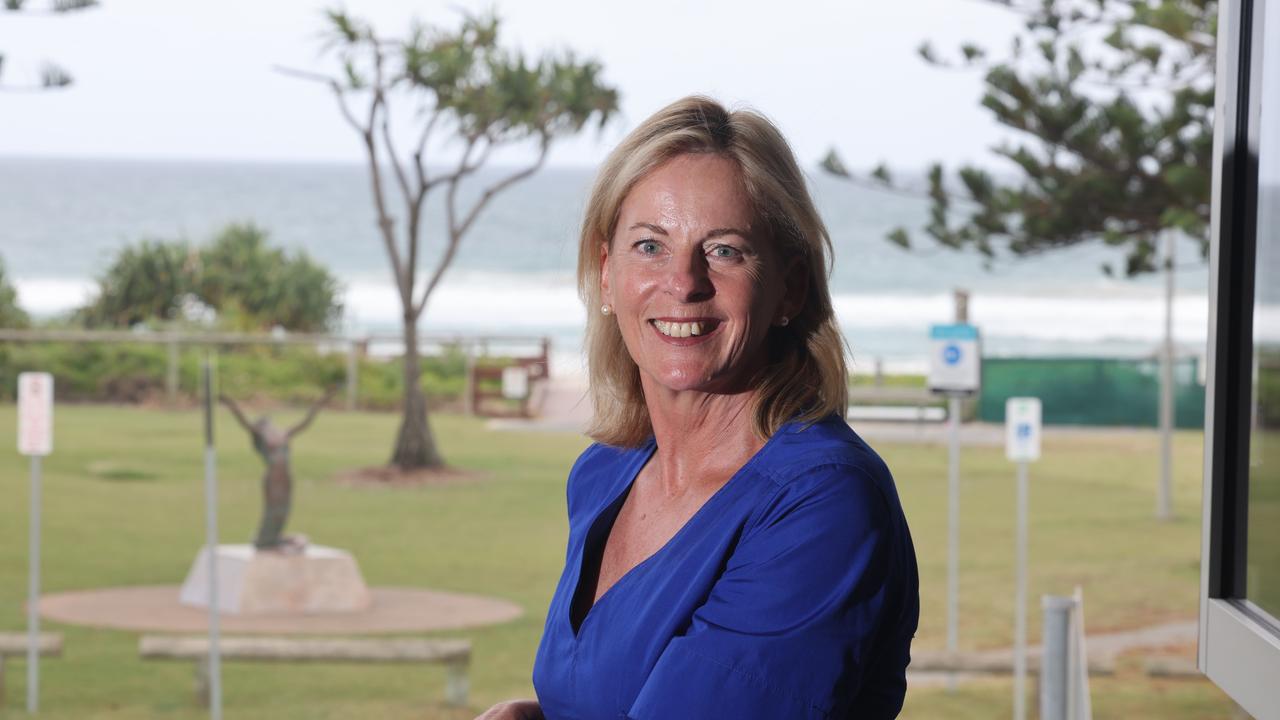Ann Wason Moore: Mum files discrimination suit after autistic son’s traumatic school change
An autistic boy and his mother - who cannot be named for legal reasons - have shared the horrific discrimination suffered at the hands of a school now at the centre of a state tribunal case.
Gold Coast
Don't miss out on the headlines from Gold Coast. Followed categories will be added to My News.
Kobe is the victim and wants his story told, but we cannot show his face or reveal his real name.
The school that broke him should surely be exposed, but it is protected by a non-publication direction ordered by the Royal Commission into Disability.
Sarah, which is not his mother’s real name, has filed a discrimination case in the Queensland Civil and Administrative Tribunal, but we can’t discuss the details of that either.
But Sarah and Kobe will not let that stop them, because they know that as traumatising as Kobe’s journey through the Queensland education system has been, he is just one of hundreds … if not thousands.
Kobe is not your average student.
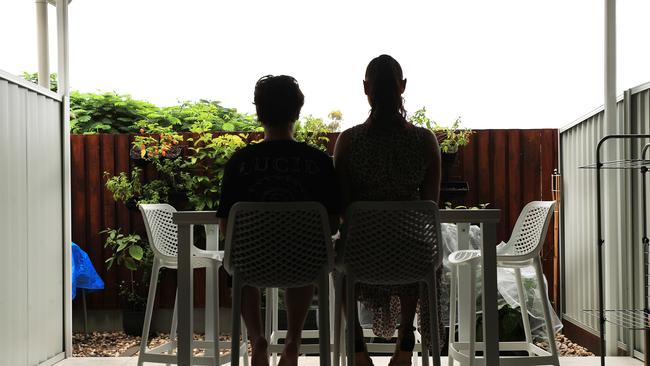
He presents with serious and complex mental health, medical and disability needs. He has level-three functioning autism, sensory processing disorder, speech language impairment, dysgraphia, attention deficit hyperactivity disorder, severe and extreme anxiety, depression which now indicates suicidal tendencies, frequent challenging behaviour, eosinophilic oesophagitis (an immune disorder), mild dysphagia, percutaneous endoscopic gastrostomy with enteral tube feeding, eczema and a delayed onset of puberty with a halt in linear growth.
Translated, that means he can present as a challenging and complex student, but history proves that when schools, principals and teachers are on his side, he can fly … academically, socially and behaviourally.
But when schools fail him, it’s Kobe that bears the brunt of their incompetence.
While the secondary school that excluded him from his education 18 months ago carries on as normal, Kobe is still suffering from PTSD caused by his mistreatment. Worst of all, that trauma means his educational journey is now officially over. He can no longer face the classroom, having lost trust in the teachers and educators who were meant to help him.
Despite achieving high marks in mainstream subjects at his former school, and previously hoping to engage in vocational training, his family say his future job prospects are now limited thanks to the abrupt and unfair end to his school days.
And it’s just not good enough.
Sarah is not just Kobe’s mother and advocate, but a teacher herself. For more than 20 years she has worked within Education Queensland, she knows her rights, she knows Kobe’s rights and she knows how to fight the system.
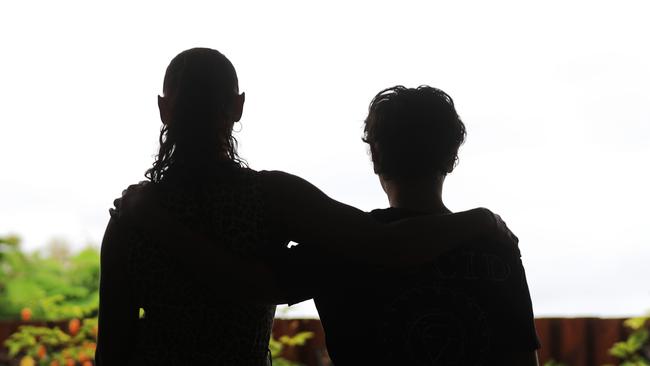
Yet still, she failed.
And that, along with worry about her son’s future, is what keeps her up at night.
If her son has been left traumatised, broken and limited by the education system, even with a passionate and wise warrior fighting his corner, what hope have other parents and students?
It’s the reason that she faced the Royal Commission into Disability last year, hoping to illuminate the failings of the system before it failed even more children.
But she fears that is not enough. With rates of homeschooling soaring and desperate pleas for help from parents on social media ASD forums, she can only imagine it’s going to get worse before it gets better.
But as Kobe well knows, she’ll never quit.
“In a state where all students have the right to an education that suits their needs, and where every student should have the opportunity to succeed and have a life of choice rather than chance, the state is letting my son down.
“I am now left with a son whose regression is so severe that I cannot put good faith in the Education Queensland school system. It is broken.
“Now my son and our family have been broken because of this, but we are not the ones that began broken. The school tried to make my son change – in ways not possible of him due to disability and other serious complex needs – to fit their environment.
“They did not change their ways to meet and support his disability. When a flower doesn’t bloom you fix the environment in which it grows, not the flower.
“Yes, my son is bright, but bright is not to be confused with autistic. It is disgusting to be told by educators, ‘he is bright, he can work things out, he’ll get by’ and ‘he is bright, he will be so successful as an adult’.
“Would you deem it acceptable for an individual who is hearing impaired to be told, ‘you can see, you can read, you’re bright, you’ll get by’? Or to tell an individual who is vision impaired, ‘you can hear, you’re bright, you’ll get by’?
“Would it be OK to not give them the support they need because they too are bright? No, because it’s discriminatory.”
Sarah is the first to admit that Kobe’s condition is difficult, but it is not unmanageable.
In fact, at another school, he was given an award for his behaviour, had only half-a-dozen incidents, which were controlled, and he excelled in mainstream classes.
Sarah says because he had progressed so well at his former school, she thought it would be beneficial to educate him closer to their family home.
“Kobe requires significant one-to-one support at all times. He demonstrates rigid thinking and poor communication skills, he misinterprets verbal and non-verbal cues and needs frequent guidance, time and patience,” she says.
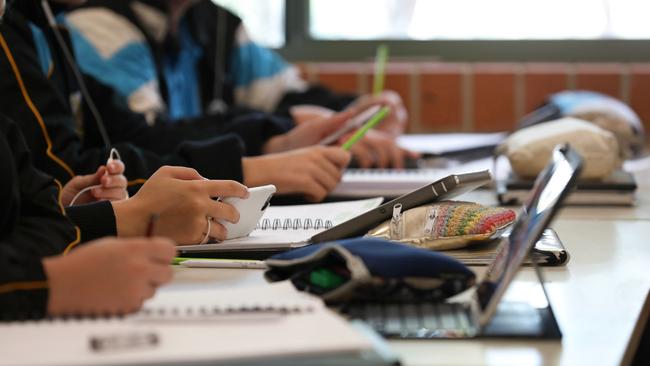
“He often has sensory overload which can result in being overstimulated which increases his anxiety which then also leads to meltdowns. He can also present with disruptive and challenging behaviours because he’s trying to avoid the trigger that’s created the anxiety. He has persecutory thoughts which can often lead to him being unsafe.
“Despite all this, he had his best schooling year ever when he transitioned to high school – even with all the changes that involved.
“Kobe had had such a successful year in Year 7, he developed some skills of independence, co-regulation, he was doing well academically with the right supports and socially he made huge advances.
“The highlight, I guess, that year for Kobe was he was invited to his first ever birthday party, which happened to be at Movie World theme park. That is a very sensory overloading place for Kobe, but the friendship group meant so much to him that he worked really hard to overcome those barriers. Obviously, I was with him for support, hanging back to allow him to be with his friends, and that was a huge achievement and just amazing for his self-esteem.
“I was hopeful that Kobe, with his newly developed skills would be able to make some friends at his new school that would live in our local area so that he could go and hang out with a friend or have a friend over without having to travel long distances. And obviously it would be great to investigate employment opportunities within our local community.”
However, the decision to move schools proved tragic for Kobe.
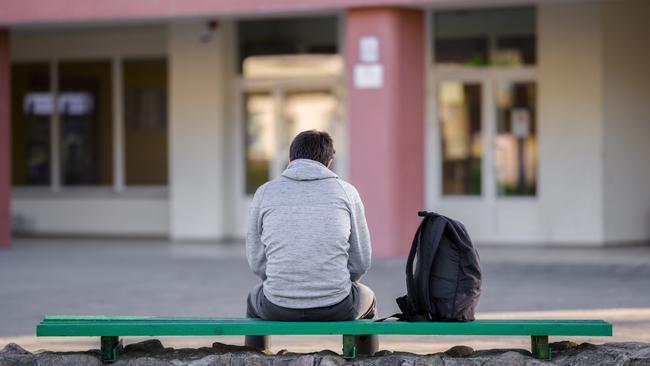
Despite detailed and explicit planning with his new school, Sarah says almost immediately the new teachers and the principal failed to follow the guidelines.
“At his previous school, Kobe’s teachers were very understanding – they tried to understand his disability, they tried to understand his limitations and they tried to understand and work with his strengths.
“I believe his first year of high school was so successful because of the planning that was put in place and the staff’s ability to be able to follow those plans.
“Because Kobe could then trust them, he knew that he was in a safe space – and the lesser his anxiety, the better his behaviour.
“Before he started at his new school, I spoke at length with the head of the special education program about Kobe’s needs and was assured that they had the capability to manage them. I provided them with all of Kobe’s support documents and plans from his previous school.
“Initially, Kobe seemed to have transitioned OK. He was attending mainstream classes for most subjects with English and math in the special education program. Although I had requested Kobe have an aide with him to transition and move around the school and provide support for him in these classes, he did not receive it.
“His anxiety began to heighten and despite trying to cope and prove to everyone he could manage, he could not. From the beginning of week four he began attending at reduced hours.
“Still not receiving any additional support, Kobe’s anxiety continued to grow. He began requesting extra water be given to him through his PEG, a strategy he uses to manage his anxiety, and exiting classes.
“It was at this point that I knew my son was not coping because he was not receiving the support he required. I requested a Complex Needs Case be opened and a submission to the Department of Education be made for additional funding. I was met with no reply.”
In fact, it took more than nine months for the school to engage support and advice from the department.
Meanwhile, Kobe’s behaviour deteriorated as his anxiety and stressors increased.

In his first year at the school, despite not even attending full time, the number of recorded incidents involving Kobe increased from six at his previous school to 47.
Despite pleading for meetings with all stakeholders and insisting that Kobe’s Inclusion Support Program (ISP) be followed, she was denied both. Both Sarah and Kobe were growing increasingly distraught by the number of suspensions and incidents occurring.
“While I did not condone my son’s behaviour on numerous occasions, I was aware that under Education Queensland policy that if a student’s plan is not followed by staff and behaviour occurs as a result, then the student cannot be suspended. Yet Kobe was.
“It was also very apparent upon examining Kobe’s ISP closely that it was breached numerous times. His ISP included ‘do not chase’ and ‘avoid discussion when heightened’ and triggers included ‘new/changed routines’. These were all ignored.
“I felt that they were punishing him for his behaviour rather than understanding the reason for it and proactively trying to find and put preventions and solutions in place to prevent the behaviour.
“His anxiety was through the roof. His education was declining because he was rarely in class. He wasn’t coping because he wasn’t getting the support that he needed, and he began fleeing from classrooms. So his anxiety increased. His behaviour escalated and frequent meltdowns ensued.

“He had teachers following him into alleged safe spaces while making comments such as ‘do you get this behaviour from home?’, ‘I’m sick of you’ and ‘You’re just attention seeking’.
“After one suspension, Kobe was brought back to school and as soon as I left he was told his timetable was changed. He was taken into a classroom of Year 7 students and segregated from them. He asked if he could sit with them and the teacher said ‘no’.
“He was confused, upset, distressed. Kobe doesn’t cope with transitions and change that has been a regular and routine part of his life since he was two years old.
“Even his case manager was constantly changing.
“Kobe had four case managers just in 2018. The second one was instrumental in where things started to take a turn for the worse, they continually broke the plans. They didn’t understand the function of Kobe’s behaviour. They labelled him and called him ‘a bad, bad boy’, something that still resonates with him on a daily basis.”
Sarah says Kobe’s education essentially ended after an incident which was, once again, mismanaged.
She says Kobe was triggered by deliberate noise from another child and the two students had a physical altercation.
She says Kobe was escorted into a quiet space by a teacher but denied access to his laptop, a change he was not aware of – another contravention of his ISP.
“That unexpected change was ultimately a trigger that caused Kobe to become very distressed and highly volatile. He went outside of the building and began kicking doors and windows. The building, the SEP building was put into a lockdown.
“My understanding of a lockdown is that all doors are closed, all teachers are inside with their students protecting them from the harm that is outside of the building. But there was one particular teacher that stood in the doorway with the door open.
FULL DIGITAL ACCESS: JUST $5 A MONTH FOR FIRST THREE MONTHS
“As Kobe approached the doorway, the teacher was standing there WWE-style. Kobe said, ‘Come on, do you want to f-ing fight?’ To which the teacher said, ‘Bring it on’. Kobe began to wrestle with the teacher and kicked the teacher in the shins.”
Sarah was called to the school and soon after, Kobe received a 12-month exclusion.
Sarah says even that exclusion indicates the complete lack of understanding of the needs of ASD children.
“It’s mind-blowing. Do they think that in 12 months Kobe won’t be autistic anymore? That he won’t require the same level of support that was never provided to him in the first place?
“Kobe has been destroyed. He had hopes and dreams and aspirations, very large ones, from a very young age of becoming a police officer. He’s now left not having even finished his Year 10 education and he is so traumatised.
“I’ve been diagnosed with PTSD, depression, and a panic disorder and my older daughter has also been diagnosed with a Generalised Anxiety Disorder because of the trauma that has been caused for us.
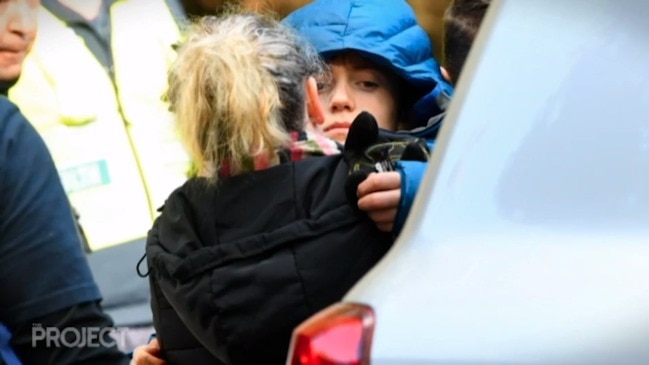
“My son has been made accountable for his actions, which actually directly resulted from a lack of understanding and support from the school, I believe all Education Queensland employees also need to be held accountable for their actions.
“I want an independent investigation into his placement at that school to ascertain the mismanagement that took place and why adequate support was not provided when they were given adequate funding.
“Kobe hates being different. He will say ‘I hate my life, I wish I didn’t have autism’. He has low self-esteem because he’s aware that he can’t control his meltdowns. He now refers to himself as a ‘bad, bad boy’ and will always ask, ‘Am I a bad boy, Mum?’
“He is always remorseful after he has had a meltdown and has had the assistance to calm and co or self-regulate. He just wishes that people wouldn’t judge him and would understand that his behaviour is as a result of his autism, that he’s not just choosing to be naughty.”
Sarah says while it is too late to change the tragic narrative of Kobe’s education experience, it’s never too late to change the system.
She says schools must be made accountable to follow the guidelines of any student’s ISP and to ensure that all funding allocated for their special needs is spent on the students, not other areas of the school such as maintenance or new facilities.
“Our case against the school with QCAT is still proceeding. Proving their discrimination is not about justice for Kobe, but every other child in his position.
“Standing up and speaking at the Royal Commission was well worth it, but it has removed our right to name and shame those involved.
“But I’m hoping that hearing Kobe’s story will enable other parents tp speak out as well. These are our children, just because they are different does not mean they are not worthy.
“We owe it to them to listen … and to fix this broken system.”
Originally published as Ann Wason Moore: Mum files discrimination suit after autistic son’s traumatic school change


